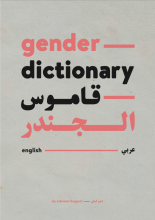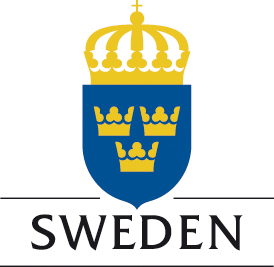|
About the newsletter
Why the Gender Equity Newsletter?
This newsletter aims to connect gender actors and practitioners in Lebanon through the exchange expertise, in an attempt to create a space for better collaboration, networking, and equal access to knowledge, research, and information. Each issue will cover the work of actors, their activities, and projects, in addition to recommending relevant resources and tools, as well as information and statistics relevant to gender work in Lebanon
The gender equity newsletter is a part of the Gender Collaborative Information and Knowledge Network- a project by Lebanon Support in partnership with Diakonia
The Gender Collaborative Information and Knowledge Network is an online collaborative platform. It is part of Lebanon Support’sCivil Society Knowledge Centre (CSKC) and brings together civil society organizations, researchers, practitioners, and experts to enhance local and national capacities, improve access to knowledge and its development, and provide evidence-based research, information, and literature on gender issues and concerns.
1. Featured resources on the Gender Equity Network
Summary of the 2nd Gender Afterworks on women’s rights movements in Lebanon

On the 24th of November, Lebanon Support hosted its 2nd Gender Afterworks discussion focusing on women's rights movements in Lebanon. The event marked the beginning of the 2016 16 days of activism against gender-based violence. It was the second in a series within our Gender Equity Network, a thematic project part of our Civil Society Knowledge Centre, which aims to covers gaps in knowledge on this issue and make gender literature easily accessible. The discussants were Caroline Succar, from the Lebanese Women Democratic Gathering (RDFL) and a researcher in gender, and Marie-Rose Zalzal, a lawyer and researcher specialising in women’s rights.
Read more.

Online and interactive version of the Gender Dictionary: traveling concepts and local usages in Lebanon
By: Lebanon Support
In July 2016, Lebanon Support launched the online and interactive Gender Dictionary which allows users and readers to browse terms easily, in alphabetical order, and displays each definition in both languages, English and Arabic. This makes it a much easier way to read specific definitions without downloading the whole pdf.
Please note that the book’s pdf version has been online since the day of the launch, last February 2016 on the Gender Equity Library within the project's page.
We sincerely hope this new tool provides a user-friendly, easily accessible way to read and use the Gender Dictionary.Use the online Gender Dictionary here.
----------------------------------------------------------------------------------------------------------------------------------------- 
The Gender Dictionary, first localised bilingual resource of its kind is also available for sale at our office, Librarie Antoine, Dawawine Bookstore, Librairie Du Liban, and Virgin Megastore.
For more info, contact us on: contact@lebanon-support.org
Download the pdf of the Gender Dictionary on this link, and read our open access policy here.
----------------------------------------------------------------------------------------------------------------------------------------
The Civil Society Review, the first peer-reviewed journal on civil society issues in Lebanon, is for sale at our office, Librairie Antoine, and Virgin Megastore.
For more info, contact us on: contact@lebanon-support.org
A preview is available here.

-----------------------------------------------------------------------------------------------------------------------------------------
2. Calls and Funding Opportunities
Call for Concept Notes: Hivos International Women Empowered for Leadership Programme
Deadline: 31/12/16
The Women Empowered for Leadership (WE4L) programme, implemented by Hivos and local CSO partners and funded by the Dutch Ministry of Foreign Affairs FLOW II Fund, aims to improve women’s political participation and leadership in the Middle East and Southern Africa.
Their aim is to ensure that women have the capacities and opportunities to participate equally and fully in public and political life and that the environment is sufficiently supporting. With a mix of training, networking, coalition building, lobby, advocacy and publications, WE4L targets potential women leaders themselves, as well as political parties, administrative bodies, trade unions and syndicates, civil society organisations, media and the wider public. The programme focuses on the local and sub-national levels that directly affect people’s day-to-day lives. Read more.
3. FOCUS ON - أضواء على
16 Days of Activism against Gender-Based Violence Campaign,
Activities of actors in Lebanon
16 days of activism to stop violence against women in Lebanon
The 16 days of activism campaign is an international campaign that lasts for 16 days between November 25th – International Day for Elimination of Violence against Women – and December 10th – Human Rights day. Several local and international organisations have been participating in the campaign.
1. ABAAD: As November 25th marked the International Day for the Elimination of Violence against Women, the U.N. Special Coordinator for Lebanon Sigrid Kaag and Norwegian Ambassador Lene Natasha Lind visited one of ABAAD’s safe houses for women and girls at high risk of violence or survivors of violence. The Ambassador met with the staff and beneficiaries to discuss the institutional and legal mechanisms necessary to protect women and girls against violence.
In line with the 16 Days of Activism, ABAAD launched a new campaign (see video) to abolish Article 522 of the Lebanese Penal Code, which allows rapists to get away with their crime if they marry their victims. On December 7th, the Lebanese Justice and Administration Committee announced it was leanin to abolish 522, although it has yet to finalise discussions and ratify this decision.
2. THE KIP Project on Gender and Sexuality: KIP launched the #NotYourAshta campaign to shed light on the issue of street harassment in Lebanon. The campaign kicked off on November 14 and ended on November 25 – the International Day for the Elimination of Violence against Women.
3. Mosaic: The organisation is participating in the 16Days of Activism to end violence against women with a Video campaign. Notwithstanding the severity of SGBV against all women, which includes both gender conforming women and women with non-conforming gender and/or sexual orientations, this video, first and foremost, hopes to underline firsthand experiences of women with non-conforming gender and/or sexual orientations living in Lebanon. These women’s prospects for an equal opportunity at a dignified and free life have been controlled and limited by state, social, and educational institutions, medical professionals, and even their own families.
4. KAFA (enough) Violence & Exploitation: The organisation is currently continuing their campaign against early marriage, “Raise the age,” since as of yet, there still has not been a minimum legal age for marriage established. The video for this campaign may be found here.
As part of their campaign, they have recently called for the adoption of a civil law for personal status, believing that such law will ensure justice for women, in case of abuse, violence or exploitation episodes.
5. Caritas Lebanon Migrant Center: The organisation is participating in the 16 days campaign against GBV. With the support of USAID - US Agency for International Development, they have launched a campaign against early and child marriage, with the video: “Protecting the Most Vulnerable Syrian women and children refugees in Lebanon.”
6. Institute for Women's Studies in the Arab World - IWSAW: The organisation is participating in the 16 days campaign, posting videos and articles on GBV in different countries of the world, such as Australia, RDC and Canada, as well as other initiatives to end violence against women and girls, such as the ones of Oxfam Middle East and the 16 days of activism toolkit promoted by UN Foundation. On December 3rd, IWSAW promoted an event which took place in Corniche, Beirut, called “Stop Violence Against Women,” organised by the EU Delegation in Lebanon.
7. Lebanese Women Democratic Gathering (RDFL): As part of the 16 days of activism campaign, the organisation has launched a campaign to ban child marriage in Lebanon together with Heya centre for public policy, called “Girls not Brides.” A video was launched alongside this campaign.
8. OXFAM: The organisation is participating in the 16 days campaign to raise awareness about gender-based violence on local, national, and international levels. As part of their campaign, they have been interviewing women with tales of transformation and empowerment who have broken down barriers and social taboos, not only to amplify their voices, but to also push others to challenge the status quo and speak up as well.
9. Sharika wa Laken: The organisation has been carrying out a campaign against child marriage, publishing articles and news advocating for the abolition of the Article 522 of the Lebanese Penal Code, which allows rapists to get away with their crime if they marry the woman they raped.
10. FeMale: As part of the 16 days of activism campaign, they have recently launched a new initiative, called “Not an Object”, aiming at collecting information and data on people's opinion about women's image in media and ads. More information can be found on their Facebook page.
11. CLDH - Lebanese Center for Human Rights: The organisation supported the “Stop Violence Against Women” campaign with EuroMed Rights to spread the word and raise awareness on International Day for the Elimination of Violence Against Women.
4. Gender news
After refusing to hand-over her 3 year old child to her husband, as ordered by the Shiite Jaafari religious court, Fatima Ali Hamzeh was arrested and jailed. In turn, protesters gathered outside the Supreme Islamic Shiite Council demanding Fatima’s release and amendments to the civil service laws which allow religious courts to handle civil issues. Fatima was later released on bail, with her court date pending.
According to a Universite Saint-Joseph study, Syrian girls are being pushed into child marriage in Lebanese refugee camps. In fact, the study found that, 23% of Syrian women within Lebanon today were married before the age of 18, These girls are often forced to marry non-Syrian men in order to escape poverty and socio-economic hardships.
A women’s rights activist and founder of the Center for Egyptian Women’s Legal Assitance (CEWLA), Azza Soliman, was arrested by the Egyptian government on charges of establishing an illegal entity and harming Egypt with the support of foreign powers. Though Soliman was freed after paying bond, her arrests signifies the continuation of a crackdown by the Egyptian government on human rights groups within the country.
A massive march for women’s rights is being planned in Washington D.C. for Trump’s Inauguration. January 21st, 2017. The “Women’s March on Washington,” scheduled for January 21st, 2017, is meant to rise up against the president-elect’s rhetoric which has insulted, sexualised, and demeaned women throughout his campaign.
On October 19th, the group Not One Less organised a protest against GBV, in which tens of thousands of women across Argentina participated in. The protesters expressed outrage over the death of a 16 year old girl who was raped and drugged.
|








